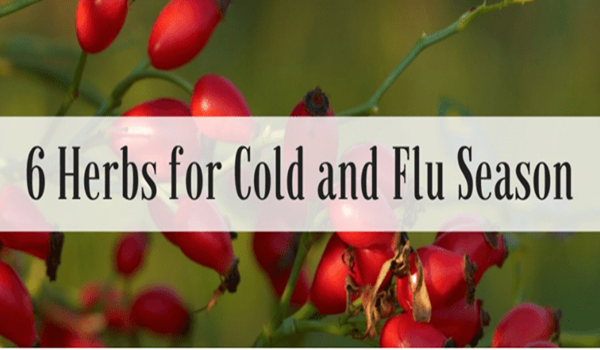As the daylight hours shorten, we start to welcome the gifts of fall. Cool, crisp mornings, school year routines, cozy sweaters, and the aroma of wood smoke curling up from the chimney tops. Maybe an apple pie and a trip to the pumpkin patch, too… However, these autumnal delights carry with them a few nasty aspects. Enclosed spaces, re-circulated air, and the worst part of all – the return of the cold and flu season.
There is really no practical way, with absolute certainty, to avoid the common cold. Great diet, adequate exercise, and excellent hygiene all play a very important role in preventing or lessening the severity of the “creeping crud,” but those viral invaders are very clever. Lucky for those of us “herbally” inclined, we have a few antiviral, immune-stimulating plant allies to add to our fortification provisions.
There are some “usual suspects” that receive lots of praise and attention this time of year – notably echinacea (Echinacea spp.) and goldenseal (Hydrastis canadensis). Both herbs are wonderful and effective, but are becoming increasingly expensive and are presently considered “at risk” by the United Plant Savers due to overharvesting and shrinking habitat. So with a nod to conservation efforts, and parameters of affordability and accessibility, here are a few beloved herbs for cold and flu to help you navigate through the season with relative ease.
1. Astragalus

Perhaps the least well known of this list, astragalus (Astragalus membranaceus) is an extraordinary immune stimulant and all over tonic. Studies have demonstrated that long term astragalus use promotes greater antibody secretion and increased lymphocyte production. As an antioxidant and adaptogen, astragalus protects cells from free radical damage and moderates the body’s stress response. A warming herb, it is said to increase “digestive fire,” promoting efficient digestion.
Astragalus can be administered as a tincture or a dried, encapsulated herb, or simmered, then steeped with your favorite aromatic herbs for a health promoting tea, like this masala chai.
2. Elderberry

A favorite of many foragers, elderberries (Sambucus nigra) are a virtual gold mine of antiviral properties. A variety of studies have indicated that elderberry may have an inhibitory effect of influenza pathogens, while also reducing the duration and severity of flu symptoms. Conveniently ripening as the cold and flu season picks up momentum, elderberries make tasty tinctures, syrups, and lozenges, while the dried berries offer teas an immunity boosting fruity note.
3. Garlic

Pungent and powerful garlic (Allium sativum) is a favorite of most chefs and “kitchen witches” alike. A well muscled antimicrobial, garlic does not play nicely with germs of any persuasion. While dried and encapsulated garlic is helpful, when delivered as a component of “fire cider,” or even eaten fresh and raw (for those so brave and daring), garlic is at its most effective.
4. Ginger

Warming, aromatic ginger (Zingiber officinale) is a familiar and comforting scent of fall that packs a pleasant, but powerful antiviral punch. Fresh ginger was even shown to demonstrate profound inhibition of the human respiratory syncytial virus (RSV) in a 2013 study. Additionally, ginger stimulates productive expectoration and helps to quiet an upset stomach. Fresh ginger simmered briefly in water makes for an aromatic and enjoyable tea.
5. Lemon Balm

This citrus scented member of the mint family is an often overlooked antiviral. Lemon balm (Melissa officinalis) may also be effective in speeding the healing of cold sores. Lemon balm makes a soothing, relaxing cup of antiviral tea, but can applied as a soothing “poultice” of sorts, or as a tincture.
6. Rose Hip

The fall bearing fruit of the ever beautiful rose (Rosa spp.) is brimming with vitamin C. Another timely foraged fare, rose hips offer exceptional antioxidant potential, anti-inflammatory benefits and great immunity support. The jewel red fruits can be foraged in the fall; after removing the inner hairy seeds, the pulp made into syrups and jellies, or dried for tea and other remedies like these homemade vitamin C pills.
Antiviral and immune stimulating herbs are a wonderful tool to utilize during the cold and flu season. While there are no guarantees, a thoughtful plan of prevention and quick acting remedies will help to keep you healthy all year long.



